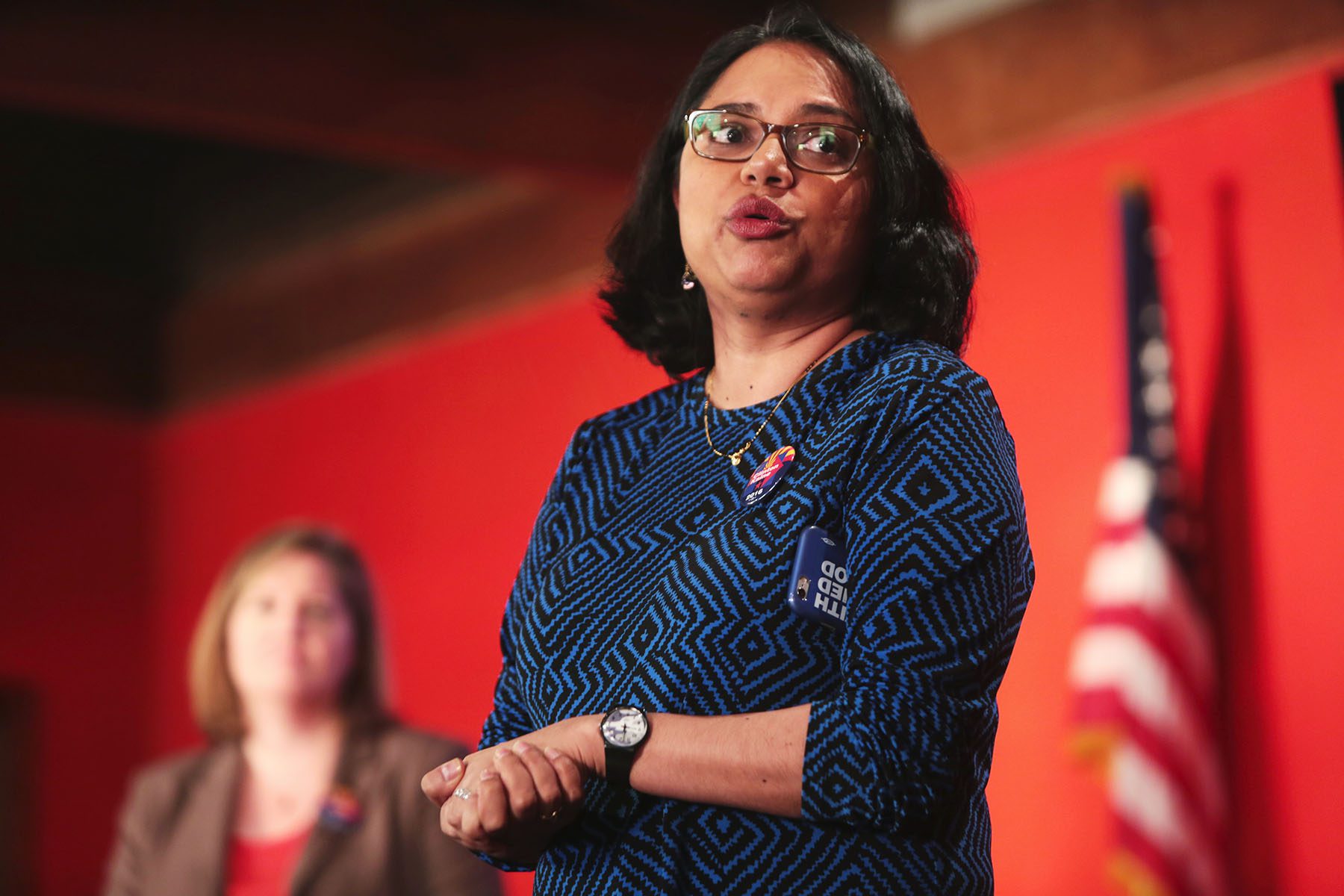When Texas passed a law that banned abortions as early as six weeks — before many people know they’re pregnant — Mini Timmaraju knew it was time to return to her home state and get back to the reproductive rights movement.
“I couldn’t come up with a reason not to do it,” Timmaraju told The 19th. “I wanted to be back in the fight, and I felt like I had something unique to offer.”
NARAL Pro-Choice America, an advocacy group that opposes restrictions to abortion, on Thursday announced that Timmaraju would be the first woman of color to helm the decades-old organization as president. In an exclusive interview with The 19th, Timmaraju spoke about her vision for the future of the organization, which has 2.5 million members nationwide. Timmaraju, an Indian American, also emphasized the importance of diversity, equity, inclusion and accessibility.
Over the course of her career, Timmaraju said she has worked at the intersection of race and gender, a unique perspective that is core to her leadership strategy. Previously, Timmaraju led diversity efforts for the Comcast Corporation, held leadership roles with Planned Parenthood and served as the director of the National Council of Asian Pacific Americans. In the political sphere, she led strategic efforts for Hillary Clinton’s 2016 campaign with a focus on reaching women voters. And under the Biden administration, she served as the senior adviser to the director of the U.S. Office of Personnel Management.
The United States hasn’t seen this level of abortion restrictions since 1973, Timmaraju said.
“Attacks on reproductive freedom have been a steady drip since Roe v. Wade,” said Timmaraju, who was born shortly after the Supreme Court issued the 1973 decision that upheld the right to abortion. “Now, almost 50 years later, we’re back to some of the same fundamental attacks.”
The Supreme Court heard two challenges to Texas’ six-week abortion ban on Monday and decisions on how to proceed with these cases could come within days. There is a very real possibility that the landmark decision is overturned, Timmaraju noted. If that happens, it is likely that more than half the country will quickly ban abortion, she said.
At least 21 states have laws or constitutional amendments in place that would ban the procedure if Roe v. Wade was overturned. According to the Guttmacher Institute, before the end of the year, there will be nine states that have abortion bans at the ready from before Roe; 12 states with trigger laws, which would go into effect if Roe is overturned; 12 states with a six-week ban; one state with an eight-week ban; and four states whose constitutions would ban the procedure altogether.
“We can’t be naive,” Timmaraju said. “We have to understand that this is going to be devastating, in particular to the most underserved groups, including people of color, immigrants and the LGBTQ+ community.”
People of color constitute the majority of abortion procedures, according to recent data. Black women and Latinas, in particular, experience higher rates of unintended pregnancy. And yet, women of color are more likely to experience barriers to reproductive and maternal health services, according to the Center for American Progress.
Legal experts anticipate the court will allow the challenges from Texas abortion providers to continue through lower courts. Next month, the Supreme Court is scheduled to hear a case addressing the constitutionality of Mississippi’s law banning abortion after 15 weeks of pregnancy.
In the interim, the protections granted by Roe hang in the balance.
“I know there’s been criticism about being too alarmist, but to be frank, I don’t think we can be alarmist enough,” Timmaraju said.
But she is still hopeful. Tough times and collective trauma can yield innovation, she said.
The anti-abortion movement has implemented a “very sophisticated, long-game and coordinated attack” at local and state levels, and Timmaraju said she plans to do the same. In her new role, she hopes to use her previous experience to reach people and leverage data to ensure that voters understand what’s at stake. Working with the Clinton campaign, Timmaraju learned about the challenges and pitfalls of regarding women as a cohesive voting bloc.
“It bears repeating: we’re expecting a lot of challenging outcomes from SCOTUS, yet I’m still optimistic,” Timmaraju said. “The movement needs to be optimistic. I am inspired by our young people and people of color organizing on the ground. We’re seeing incredible leaders rise up.”








